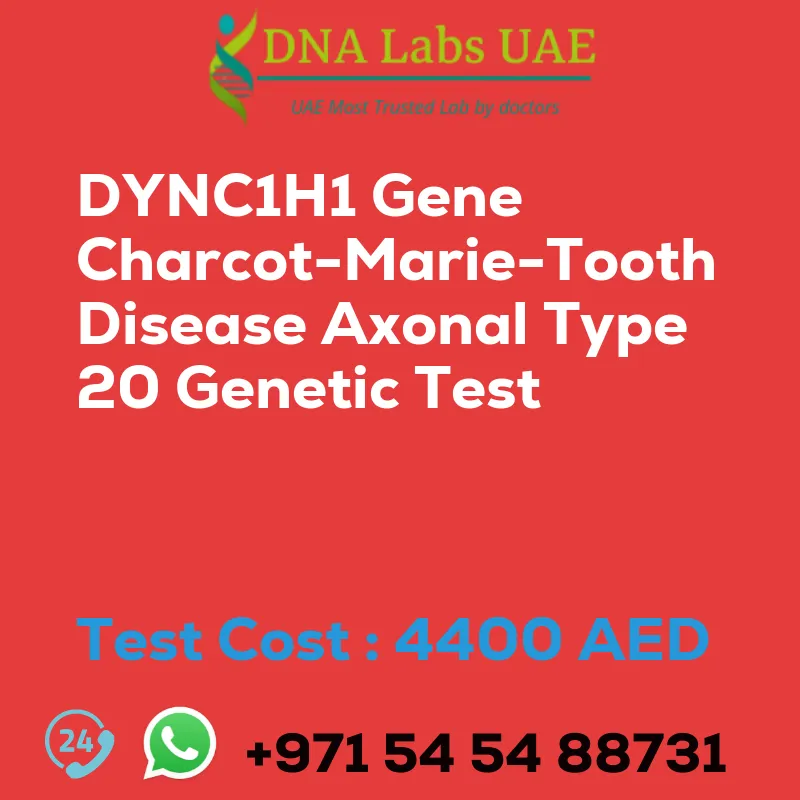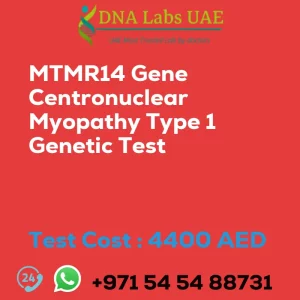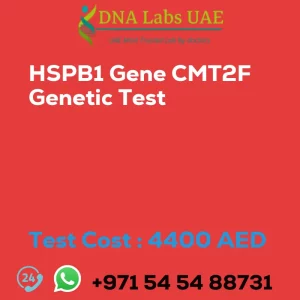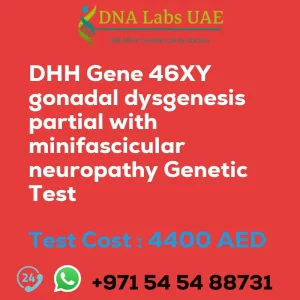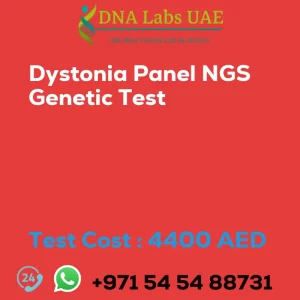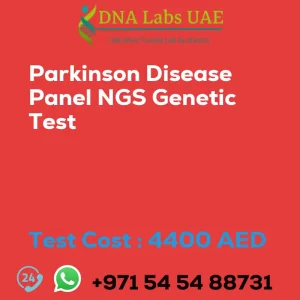DYNC1H1 Gene Charcot-Marie-Tooth disease axonal type 20 Genetic Test
Test Details
The DYNC1H1 gene is associated with Charcot-Marie-Tooth disease, axonal type 20. This genetic test is performed using Next Generation Sequencing (NGS) technology to detect variations in the DYNC1H1 gene that may cause the disease.
Charcot-Marie-Tooth disease is a group of inherited disorders that affect the peripheral nerves, causing muscle weakness and wasting in the feet, legs, hands, and forearms. Axonal type 20 is a subtype of Charcot-Marie-Tooth disease that specifically affects the axons, which are the long fibers that transmit nerve impulses.
The NGS genetic test for the DYNC1H1 gene can help diagnose the disease and guide appropriate treatment and management strategies.
Test Components
- Price: 4400.0 AED
- Sample Condition: Blood or Extracted DNA or One drop Blood on FTA Card
- Report Delivery: 3 to 4 Weeks
- Method: NGS Technology
- Test Type: Neurological Disorders
- Doctor: Neurologist
- Test Department: Genetics
Pre Test Information
Before undergoing the DYNC1H1 Gene Charcot-Marie-Tooth disease axonal type 20 Genetic Test, it is important to provide the clinical history of the patient. Additionally, a Genetic Counselling session may be conducted to draw a pedigree chart of family members affected with the disease.
| Test Name | DYNC1H1 Gene Charcot-Marie-Tooth disease axonal type 20 Genetic Test |
|---|---|
| Components | |
| Price | 4400.0 AED |
| Sample Condition | Blood or Extracted DNA or One drop Blood on FTA Card o |
| Report Delivery | 3 to 4 Weeks |
| Method | NGS Technology |
| Test type | Neurological Disorders |
| Doctor | Neurologist |
| Test Department: | Genetics |
| Pre Test Information | Clinical History of Patient who is going for DYNC1H1 Gene Charcot-Marie-Tooth disease, axonal type 20 NGS Genetic DNA Test A Genetic Counselling session to draw a pedigree chart of family members affected with DYNC1H1 Gene Charcot-Marie-Tooth disease, axonal type 20 |
| Test Details |
DYNC1H1 gene is associated with Charcot-Marie-Tooth disease, axonal type 20. This genetic test is performed using Next Generation Sequencing (NGS) technology to detect variations in the DYNC1H1 gene that may cause the disease. Charcot-Marie-Tooth disease is a group of inherited disorders that affect the peripheral nerves, causing muscle weakness and wasting in the feet, legs, hands, and forearms. Axonal type 20 is a subtype of Charcot-Marie-Tooth disease that affects the axons, which are the long fibers that transmit nerve impulses. The NGS genetic test for DYNC1H1 gene can help diagnose the disease and guide appropriate treatment and management strategies. |

